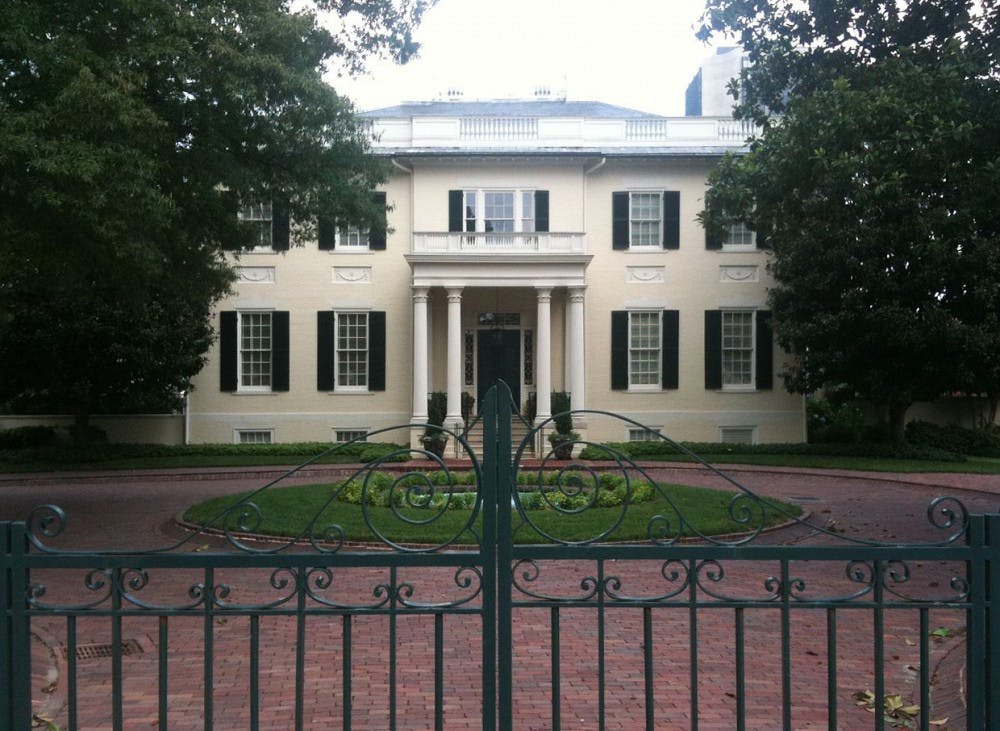In light of Donald Trump’s defeat of Hillary Clinton, the result of Virginia’s 2017 gubernatorial election will likely garner national attention, in part due to its recent standing as a swing state.
Next year’s race for governor is one of only two gubernatorial elections nationwide, the other being New Jersey.
Though Trump won the national election in the Electoral College, Virginia went blue by more than a 5 point margin.
The election, which will take place in Nov. 2017, will occur nearly a year after Trump takes office in January.
Since 1977, no party that has won the presidential election has gone on to capture the Virginia governorship, besides current Gov. Terry McAuliffe (D-Va.), who was elected in 2013 following President Barack Obama’s election for a second term in 2012.
Virginia has strict term limits — the state constitution prohibits the governor from serving consecutive terms.
Politics lecturer Carah Ong-Whaley said she believes there is a clear connection between the results of the presidential election and Virginia’s gubernatorial race.
“Undoubtedly sentiments about national politics and the president will play a role in the ability of the parties to mobilize voters and in voters' evaluations of state candidates,” Ong-Whaley said in an email statement.
Currently, four candidates are competing for the Republican nomination — Corey A. Stewart, Ed Gillespie, U.S. Rep. Rob Wittman (R-Montross) and state Sen. Frank Wagner (R-Virginia Beach).
“With a greater number of candidates vying for the Republican Party nomination, it could potentially split the vote among the more mainstream candidates and give Corey Stewart an advantage,” Ong-Whaley said.
Stewart currently serves as chairman of the Prince William County Board of Supervisors. Stewart was Trump’s state campaign chair in Virginia from Dec. 2015 to Oct. 10, 2016, and said he believes his support of Trump will provide him a greater campaign platform running for governor.
“I’ve embraced Trump from head to toe from the beginning since last December of 2015, and Ed Gillespie has completely turned his back on him,” Stewart said.
Whaley, in contrast, said it is not clear whether Stewart will receive the support of Trump’s voters.
Stewart was removed from Trump’s campaign after serving as chair for “essentially for trying to be more Trump than Trump himself,” Whaley said.
The Trump campaign released Stewart immediately after an Oct. 10 pro-Trump protest outside of Republican National Committee headquarters. Stewart was protesting the RNC and Republican leaders who were siphoning resources to other states with down ballot races.
In a statement after the rally, Trump’s deputy campaign manager David Bossie said Stewart staged the rally without the campaign’s knowledge or consent.
Gillespie — seen as the current frontrunner for the Republican nomination — is the former chair of the RNC, was the Republican nominee for U.S. Senate in 2014 and a counselor to President George W. Bush’s administration. Gillespie did not offer support for Trump until May 4.
Gillespie is favored to win the race for the Republican nomination, with support from 19 percent of Virginians surveyed in a University of Mary Washington poll conducted in Sept. 2016. However, 40 percent of Virginians said they did not have a preference.
Wagner, another Republican candidate, said he believes if Trump delivers on his promises for deregulation, his victory will have a very positive effect for the Republican Party in the 2017 election.
Wagner’s campaign will primarily focus on state transportation, education and regulation.
Wagner said he hopes his experience as a veteran, business owner, Virginia native and state senator will aid his victory.
“Ultimately, what this vote is about … is hiring someone to run Virginia,” Wagner said.
It is too early to determine how Trump’s victory will impact the race for governor, Wittman campaign spokeswoman Farahn Morgan said. Wittman is focusing on his current constituents and his plans for the 2017 election have not changed, Morgan said.
Wittman supported Trump during the presidential election.
Democratic Party of Virginia spokesperson Emily Bolton said she thinks the current division of the Republican Party — with four current candidates vying for the nomination and varying endorsement of Trump — will hurt them in the election.
“They are going to be pushed to the right on some of these social issues that divide their caucus quite a bit — for example, LGBT rights,” Bolton said. “I think that is to their detriment. They are going to have a to spend a lot of money beating each other just to get to the election.”
Current Lt. Gov. Ralph Northam is the only Democratic candidate to announce his candidacy in the gubernatorial race next fall.
Democratic Virginia Sens. Mark Warner and Tim Kaine, as well as McAuliffe, have endorsed Northam.
Bolton said she thinks the race will focus more on candidate’s policies.
“I think that this upcoming election is going to be more about the issues,” Bolton said. “What happened [in the presidential election] was about personalities.”
Northam campaign manager Brad Komer said Northam will focus on reaching out to as many areas of Virginia to promote his policies and record.
Like his Republican counterparts, Northam’s campaign will focus on economic areas of interest, but also — if elected — on protecting women’s health and reproductive rights and LGBT rights.
“[Northam will not let] a rigid social ideology threaten our progress by discriminating against the LGBT community and reducing access to women’s healthcare,” Komar said.
Historically, Virginia’s gubernatorial races have been tight, Bolton added.
McAuliffe's office, the Republican Party of Virginia and Gillespie did not return requests for comment.







